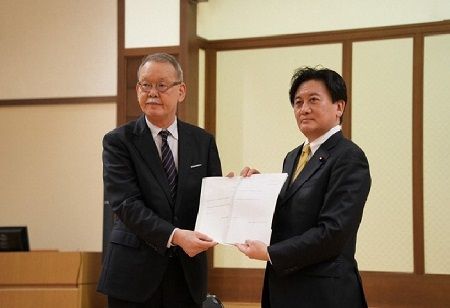Japan Considers Reducing Class Periods by Five Minutes Under New Curriculum Revisions. Japan's elementary and middle schools may reduce class periods by five minutes following proposed revisions to curriculum guidelines, which the education minister has asked an advisory body to review.
The curriculum guidelines, which set the minimum standards for learning content in elementary, junior high, and high schools, are legally binding. Typically revised every 10 years, the new changes are expected to be gradually implemented, starting with elementary schools in the 2030 academic
In a written proposal to the Central Council for Education submitted in Dec, Education Minister Toshiko Abe emphasized the need for the inclusion of students with diverse characters and backgrounds. The ministry would promote flexible curricular structures to bring out the ingenuity of schools and education boards.
Specifically, it will consider reducing class time from the current 45 to 40 minutes per session in elementary schools and from 50 to 45 minutes in junior high schools, providing a mechanism for flexible use of the time created by the reductions. For example, this five-minute reduction will leave room for a total of 127 sessions per academic year for fourth through sixth-grade students. The plan is to use these sessions for activities that match the actual conditions and interests of the students and the school.
However, if class time is shortened without reducing the amount of content taught, teachers may feel more burdened. It is also unclear whether students will be able to deepen their understanding in a short period, and there is concern that this could lead to a decline in basic academic skills if sufficient measures are not taken. The time cut would be up to the discretion of schools and education boards.
Other proposed revisions include: making the content of study at each grade level, currently fixed in principle, more flexible; and enhancing educational content related to advanced technology in anticipation of the rapid development of generative AI.
Considering the teacher shortage, the proposal also emphasizes measures to reduce the burden on teaching staff. For example, the volume of textbooks has increased in line with past guideline revisions, and it has been pointed out that this has made teachers busier, so the volume of textbooks will be examined.
In addition, the minister consulted the council on teacher training. To encourage professionals from other industries to transition into teaching, the ministry is proposing to simplify the process for graduate students to obtain a teaching license. The council will also discuss improvements to the teacher qualification examination for those who have not pursued a teaching degree at a university, as well as the potential for holding simultaneous positions in the private sector.

